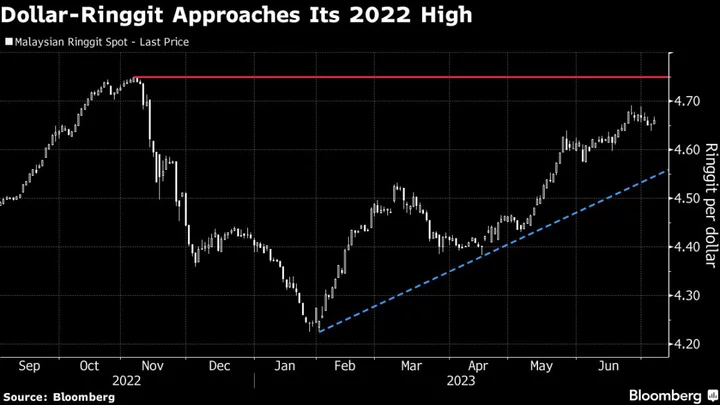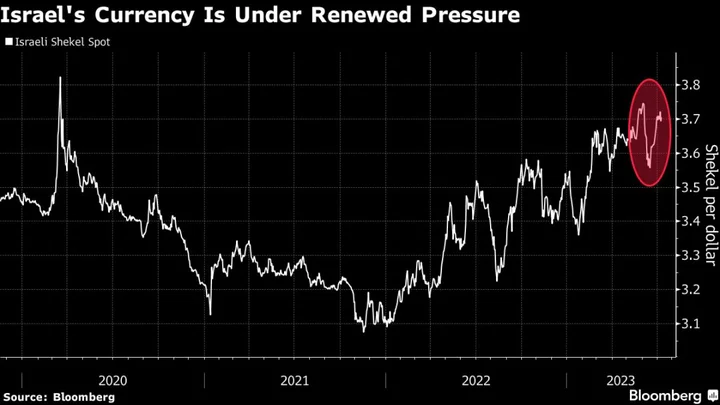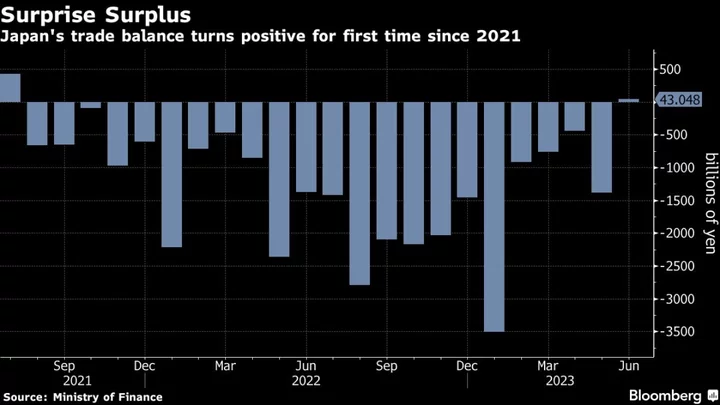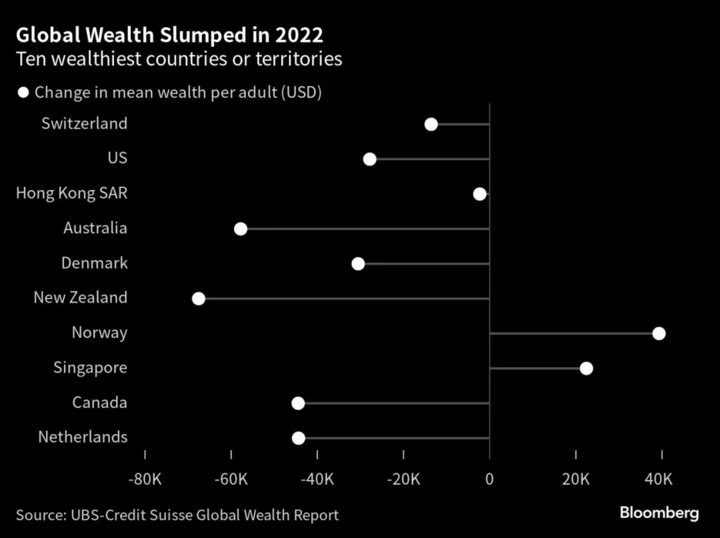The ringgit’s tumble toward a 24-year low is raising expectations that Bank Negara Malaysia will step in to arrest the decline.
Traders are on watch for any signs of support by the central bank after the currency slid more than 5% in the past three months to underperform all its emerging Asian peers. Domestic political instability, a vanishing yield premium over Treasuries and China’s slowing growth have all contributed to the ringgit’s decline.
Another drop of almost 2% will bring the currency to its 2022 low versus the dollar, which was the weakest level since 1998. Analysts say that may be the cue for BNM to make good on a pledge to prop up the ringgit — if it hasn’t already done so.
“It’s likely that BNM will follow up on its verbal signaling and intervene in FX markets if USD/MYR moves too high and too quickly,” said Galvin Chia, emerging markets FX strategist at NatWest Markets in Singapore. “The 2022 highs at around 4.7495 would be a natural point to watch.”
The ringgit fell 0.1% to 4.6650 per dollar on Friday. If May industrial production figures due Wednesday undershoot expectations, the recent slide may extend.
Authorities may not welcome further weakness given that Malaysia was included in the US Treasury’s “monitoring list” for currency practices released in June. The congressionally mandated report is designed to pressure the US’ trading partners which are perceived to be artificially holding down their exchange rates to gain a competitive advantage.
BNM and market representatives said last month that the central bank stands ready to intervene to stem forex movements that are “deemed excessive.” The ringgit’s weakness doesn’t reflect Malaysia’s fundamentals and the drop has been fueled by the monetary tightening in major economies, they added.
But some analysts say BNM may have limited power to halt the ringgit’s decline. They point to Japan’s experience, where intervention by the authorities only briefly propped up the yen.
“Currency intervention could slow MYR weakness, but the wide US-Malaysia interest rate differential could continue to weigh on the MYR,” said Moh Siong Sim, FX strategist at Bank of Singapore Ltd. Stronger pushback by Chinese policymakers against the yuan’s depreciation should help the ringgit given the high correlation between the two currencies, he added.
Here are the key Asian economic data due this week:
- Monday, July 10: China CPI and PPI, Japan BoP current account and trade balance
- Tuesday, July 11: Australia consumer and business confidence, household spending, Philippine trade balance
- Wednesday, July 12: RBNZ interest rate decision, RBA Gov. Lowe speaks, Malaysia industrial production, Japan PPI and core machine orders, India CPI and industrial production
- Thursday, July 13: Bank of Korea interest rate decision, China trade balance, Australia consumer inflation expectations, New Zealand business manufacturing PMI and retail card spending
- Friday, July 14: Japan industrial production, India trade balance









